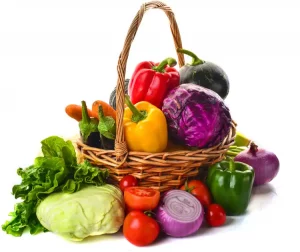
People with IBS frequently have gastrointestinal problems after eating certain meals, and what may cause symptoms in one person may not cause symptoms in another. Everyone’s body is different, therefore things that irritate you may not irritate someone else. However, there are several meals that are likely to benefit your digestive system without aggravating your IBS symptoms. Although there are fundamental tactics that can help everyone with IBS, what works best for you will require a tailored approach.
When you have irritable bowel syndrome (IBS), you may be aware of which foods you should avoid. However, for many people, the importance of knowing which foods to eat to relieve IBS symptoms is often underestimated.
Best Food for Irritable Bowel Syndrome (IBS)
For the many IBS subtypes, there appear to be several diet options that produce treatment. Some may need to be tweaked for long-term relief, but with a little patience and trial and error, you’ll eventually find an eating plan that can help you manage your IBS symptoms.
Proteins, fruits and vegetables, nuts, and other foods that are most likely to help your IBS symptoms are listed in this article. It also includes foods that are low in FODMAPs, which means they don’t ferment so easily with bacteria in your gut, causing gas, bloating, and pain.
Making lifestyle and dietary modifications are helpful ways to start controlling your IBS.
Eat More of These Foods
- Dairy: Almond milk, lactose-free milk, rice milk, coconut milk, lactose-free yogurt, and hard cheeses.
- Fruit: Bananas, blueberries, cantaloupe, grapefruit, honeydew, kiwi, lemon, lime, oranges, and strawberries.
- Vegetables: Bamboo shoots, bean sprouts, bok choy, carrots, chives, cucumbers, eggplant, ginger, lettuce, olives, parsnips, potatoes, spring onions, and turnips.
- Fats and Oils: 3-4 tsp oil/ day
- Sugars: 1-2 tsp table sugar/ day
- Protein: Beef, pork, chicken, fish, eggs, and tofu.
- Nuts/Seeds: (limit to 10-15 each) Almonds, macadamia nuts, peanuts, pine nuts, and walnuts.
- Grain: Oats, oat bran, rice bran, gluten-free pasta, quinoa, white rice, and corn flour.
You can also try a low-FODMAP diet for a short period of time to help you identify specific food triggers. Fermentable Oligosaccharides, Disaccharides, Monosaccharides, and Polyols, known as FODMAPs are short-chain carbohydrates that absorb water and ferment in the colon. It’s a type of carbohydrate that might cause digestive problems. Apples, onion, garlic, wheat, lactose, and sugar alcohols are all high in FODMAPs. Avoiding trigger foods and maintaining a healthy, balanced diet are the first steps toward alleviating IBS symptoms. Gas, bloating, and abdominal pain are all symptoms of IBS, and eating low-FODMAP meals can help you avoid them.
Low FODMAP Foods You Can Eat on Diet
- Lactose-free milk or other alternatives, like rice or almond milk
- Fruits like oranges, blueberries, strawberries, and grapes
- Eggs
- Meat
- Rice or quinoa helpful
- Vegetables like carrots, eggplant, green beans, pumpkin, and zucchini
Don’ts:
- Avoid Caffeine or Alcohol
- Avoid eating high fibre legumes
- Avoid Processed Foods
- Avoid Dairy Products
- Avoid whole Nuts
What works for another person might not work for you. However, lean meats, eggs, omega-3-rich seafood, almonds, homemade bone broth, carrots, bananas, and other low-FODMAP fruits and vegetables may be beneficial. Fermented foods are also beneficial to your gut flora.
If you’re considering this diet, you can also speak with a licensed nutritionist. It’s critical to ensure that your eating plan is both safe and healthful. He or she will recommend that you cut FODMAPs out of your diet. Then you gently reintroduce the carbohydrates one at a time, keeping track of your symptoms. A food journal and a symptom chart could be useful tools. Keep an eye on how your body reacts to different diets, since you may need to change your eating habits.
How Do You Feel When You Have IBS?
IBS is characterized by stomach pain and changes in bowel patterns. Constipation, diarrhea, or both are possible symptoms. You may get stomach pains or the sensation that your bowel movement is incomplete. Many people who have it experience gassiness and experience bloating in their abdomen. Chronic pain and frequent trips to the bathroom can make living difficult. After eating, abdominal pain may become severe. Symptoms are more common in women during their menstrual period.
People with IBS Typically Describe Their Abdominal Pain As:
- Cramping,
- Stabbing,
- Aching,
- Sharp,
- Or throbbing.
At the Inner Health Clinic – Transform Your Gut in Stockport, Manchester, you may learn more about foods for IBS. Make an appointment by calling 07712 620909 or emailing info@transformyourgut.co.uk.

